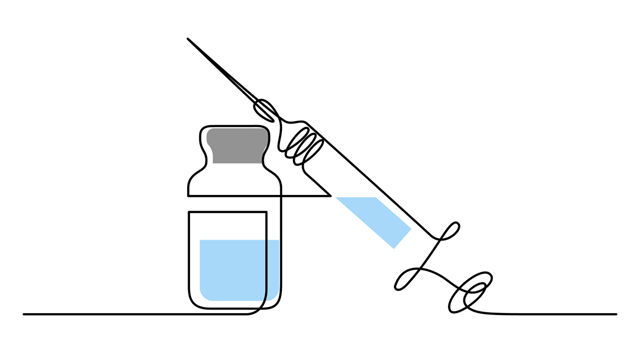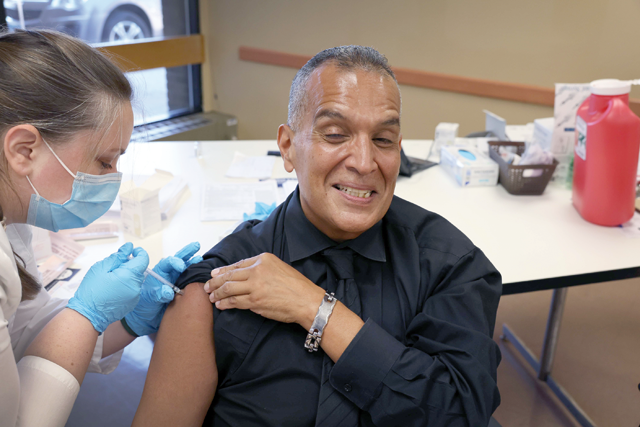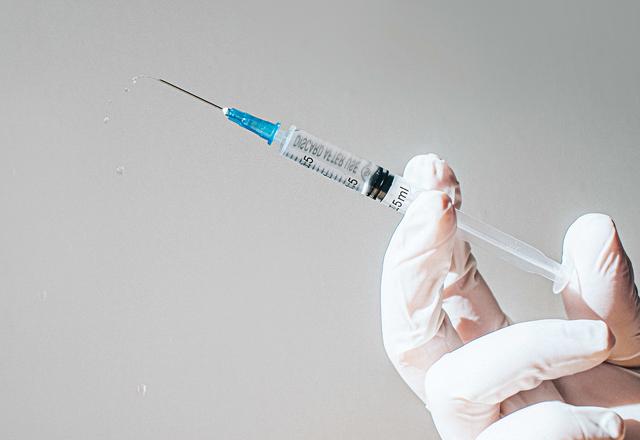You are here
More contagious, less severe: What we know about Omicron
By AFP - Dec 23,2021 - Last updated at Dec 23,2021
PARIS — A month after it was first detected in southern Africa, Omicron is now known to be far more contagious than previous variants of Covid-19 but appears to cause a less severe illness than its predecessors.
What isn't clear is how the newest variant will change the face of the pandemic.
Just how severe
Comparing Omicron to the Delta variant, the president of the French government's scientific advisory board Jean-Francois Delfraissy said its transmission is much higher but that its severity is probably weaker.
"But we don't know how much weaker," he said.
Omicron is spreading faster than any variant before it, with cases in some countries doubling every two to three days. It has already overtaken Delta as the dominant strain in Denmark and the UK, where the number of new cases daily has topped 100,000. It is likely to become dominant in other countries soon.
However, the first studies from South Africa, Scotland and England this week show that Omicron appears to lead to fewer hospitalisations than Delta.
Data show Omicron could be between 35 and 80 per cent less severe than Delta, though experts warn these early results should be analysed with caution.
It is unknown, for example, whether Omicron is causing fewer hospitalisations because the variant itself is less virulent. Another hypothesis is that is is causing less-severe disease because large numbers of people have already had Covid or been vaccinated against it.
How many hospitalisations?
A key unknown is whether Omicron will lead to increased hospitalisations, straining national health systems.
"Even if Omicron does cause less severe disease, the sheer number of cases could once again overwhelm unprepared health systems," World Health Organisation chief Tedros Adhanom Ghebreyesus said last week.
In South Africa hospitalisations appear to be limited, but experts note one reason could be the relative youth of its population compared to Europe.
Do vaccines still work?
Recent lab tests show that antibody levels in blood samples from people vaccinated with Pfizer-BioNTech and Moderna jabs drop when faced with Omicron.
The drop is even greater in those vaccinated with AstraZeneca or Sinovac, a Chinese jab authorised in about 50 countries. A booster seems to increase antibodies, with both Pfizer and Moderna announcing positive results from recent tests.
But nobody knows how long the booster will be effective.
Even less is known about the efficacy of Novavax, the recently-approved vaccine because it was in clinical trials when the Alpha and Beta variants still dominated.
But this does not mean vaccines are useless against Omicron: the body has a secondary immune defence called T-cell response, which fights the virus by attacking infected cells.
This secondary response is particularly important in preventing severe forms of illness.
A recent study from South Africa showed Pfizer/BioNTech remained effective at preventing severe Covid from Omicron even after just two shots.
Containment havoc ?
Another feared consequence of the Omicron wave is that current containment rules in case of infection require many people to isolate even if they aren't very sick.
On Wednesday the UK changed required isolation for vaccinated people who tested positive for Covid from 10 to seven days.
South Africa has made a similar move, with seven days of isolation required for patients with symptoms.
France is mulling the measure.
Related Articles
PARIS — France became the latest country on Tuesday to authorise new COVID-19 vaccines that have been updated to target Omicron subvariants
THE HAGUE — The EU’s medicines watchdog on Monday approved a vaccine specifically targeting the new and contagious types of the Omicron vari
Experts say it is too soon to know for sure if countries will need to organise a third vaccine round later in the year. Some suggest that priority should be given to hundreds of millions in the global south who have not even gotten their first jab yet.














